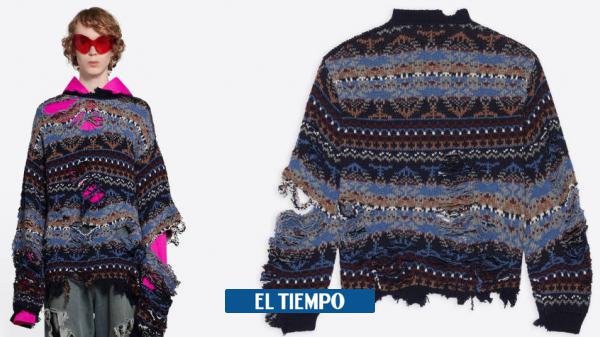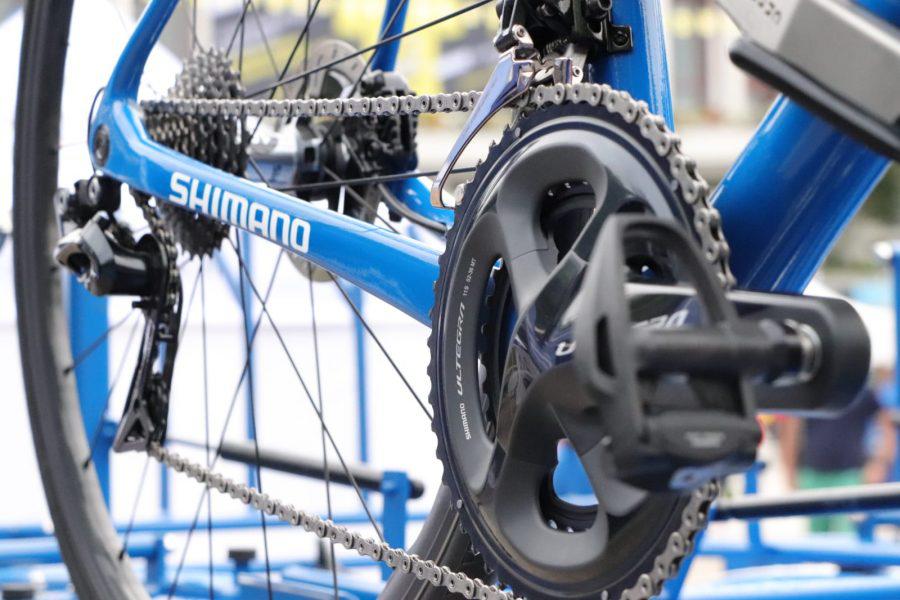The rebirth of Shana: from the disappearance to the ally of the Asians against Zara
Until 2016, Shana lived in a bubble of happiness. The Catalan company had a strong network of stores throughout Spain, which translated into a million-dollar turnover. The textile company was the queen of low cost. However, just a year later, the bubble burst and Shana's life went from rosy to pitch black. Those responsible, in part, for this failure were Primark and Lefties, Inditex's budget brand.
Julián Imaz, founder of Shana, grew up in the foothills of Inditex. The Catalan businessman was a supplier to the company founded by Amancio Ortega. Such was Imaz's eye that he sold the company to the Galician giant and they put him in charge of Bershka. After years dedicated to the textile sector, Imaz decided to take the leap and create his own brand by buying back Comdipunt from the Galicians. In this way Shana was born.
Imaz knew how to read the market very well back then. He found a niche that was not yet being explored by any of the main textile firms, the 'low cost'. That's why he jumped into this segment and became the king. According to the founder, “my territory is no man's land. We have to sell what others stop selling.
From 2010 to 2016 the chain did not stop growing. Until that year, its network of stores had been increasing until reaching 160. This also translated into a good financial situation. The company was capable of generating a turnover that exceeded 100 million euros per year. Its main strong point was absolute control over its suppliers, trying to reduce prices as much as possible.
THE RISE OF LEFTIES AND PRIMARK
However, in 2017 the problems began for Shana. The rise of Primark and the launch of Lefties, Inditex's 'low cost' brand, made the market too competitive. That is why the Catalan company began to have losses and thought of a new reformulation of its strategy.

Shana left its expansion in Spain behind and began to reduce the number of physical stores it had. "From Shana we will keep some twenty of our own stores, another thirty we will transfer to licenses and we will keep another forty current licenses," explained Julián Imaz at the time. In addition, the company decided to get out of the war because of the price.
But this wasn't the only change Shana made to her strategy. The clothing chain wanted to turn to the online world, with the launch of a b2b platform where Shana, Double Agent and Friday's Project joined.
What Shana's owner intended was to avoid the inevitable: closing. The company was bordering on bankruptcy. In the last years of life, the company reaped debts worth 119 million euros. All the group's movements were aimed at being able to renegotiate the debt and avoid bankruptcy proceedings.
The company was unable to reach an agreement with banks or suppliers to renegotiate the payment plan they had proposed to pay off their debts. The creditors rejected the agreements of Comdipunt, Friday's Project and Shana Shop, failing to reach the 65% necessary to give the green light to the agreement.
Faced with this refusal, in 2018 the group that owns Shana had no choice but to close it. Given the lack of agreement by the parties, in October 2017 the company to which Shana belonged decided to voluntarily file for bankruptcy. This was the end for one of the Spanish companies that catapulted the 'low cost'.
SHANA'S SECOND LIFE
After years out of the retail circuit, it was at the end of 2021 when Shana wanted to shine again. To achieve this purpose, Julián Imaz assigned his license to a group of investors. In the specific case of Shana, the clothing firm now operates through the company led by Eduardo Manrique, SHL Stores.
The businessman has turned to this reopening. From the group they want Shana to be faithful to her beginnings and that is why her strategy will be to focus on the 'low cost' segment and specialize in women's fashion. To complete its relaunch, the company has already opened its first stores.
The first of them has been in style, taking over one of the most emblematic buildings in Barcelona, the one that would occupy the also extinct Blanco. Furthermore, knowing that this revival is going to be very gradual, SHL Stores wanted to make a minimum investment. That is why this new Shana store has only incorporated image elements and donkeys to hang clothes.
But this is not the only store that Shana has opened in Spain. In addition to its original premises in Barcelona, the clothing chain has another five establishments that are managed under a franchise system.
However, Shana's new owners know they need one more boost. And this push has been given by the Asian Shein. Chris Xu's textile company knows that to colonize Europe it needs to turn its strategy around and have physical points of sale. For that, he has the collaboration of Shana. Both companies have reached an agreement to sell their products in the Catalan store.
It seems that with this union Shana seeks, in addition to improving her income and her influence in the sector, to take revenge on Primark and Inditex. Shein is the main rival of the other two giants, so helping the Asians harms both multinationals. Be that as it may, Shana is proving capable of rising from the ashes. With these steps, it hopes to fulfill the goal of opening 53 stores in three years and achieving a turnover of more than 15 million euros.


























Winter Prep List: How to Get Ready for Winter
06/06/2022Are you prepared for winter? It's not too late to get ready, but you'll want to take care of some important tasks in order to make sure you're prepared for the cold weather. This winter pr...